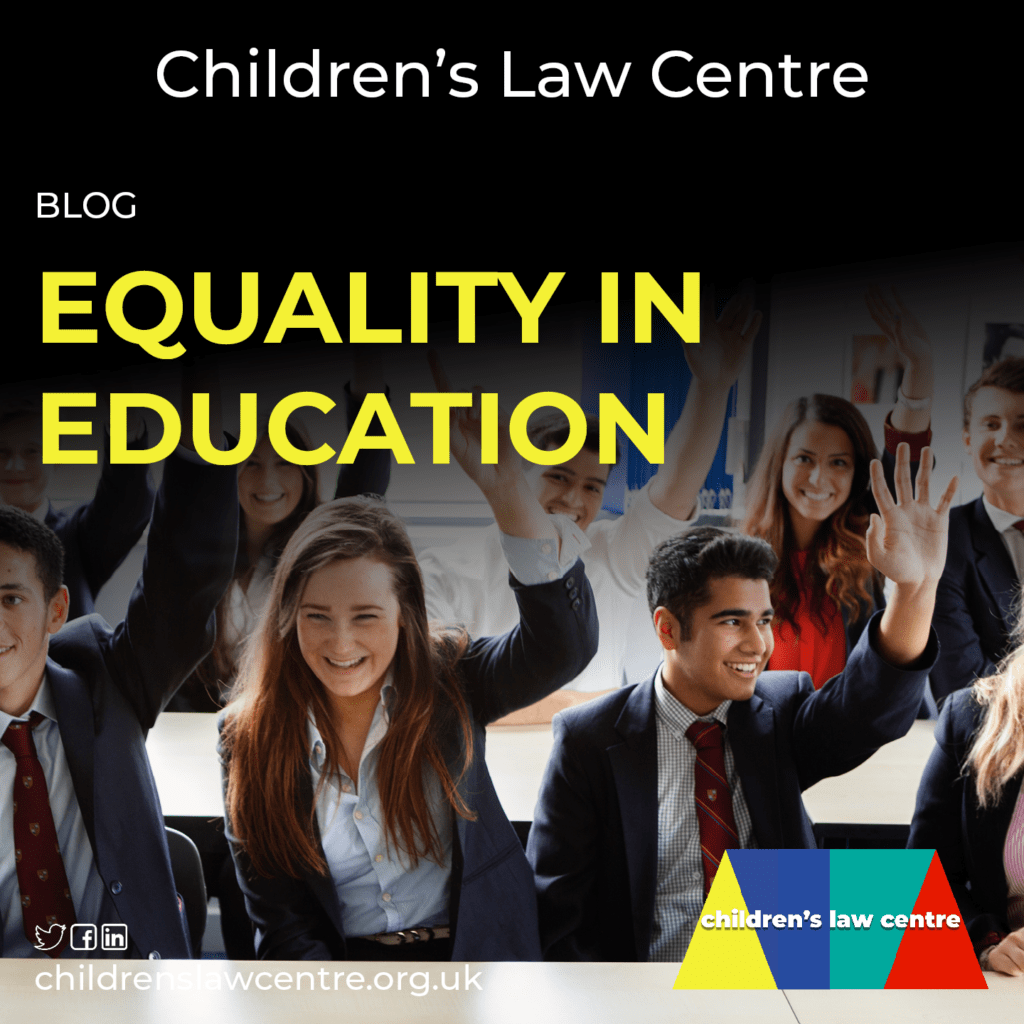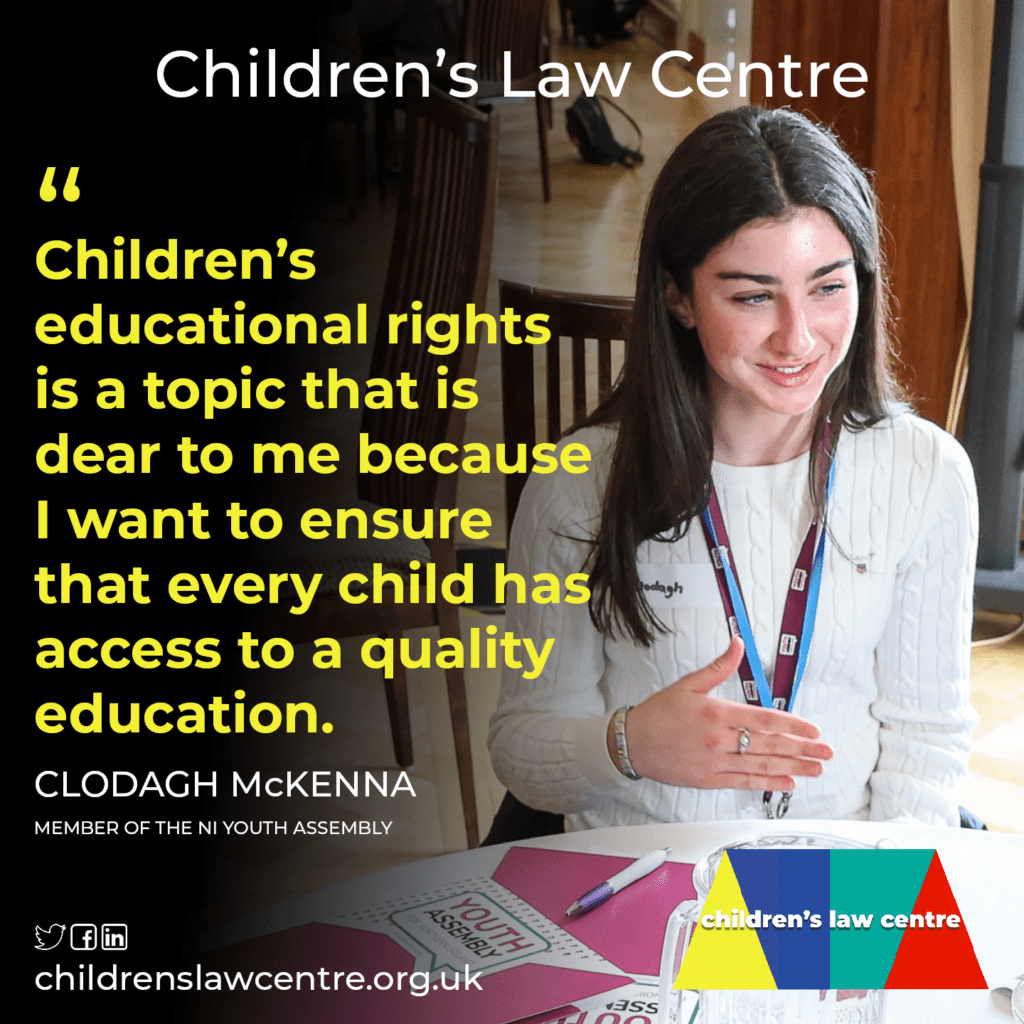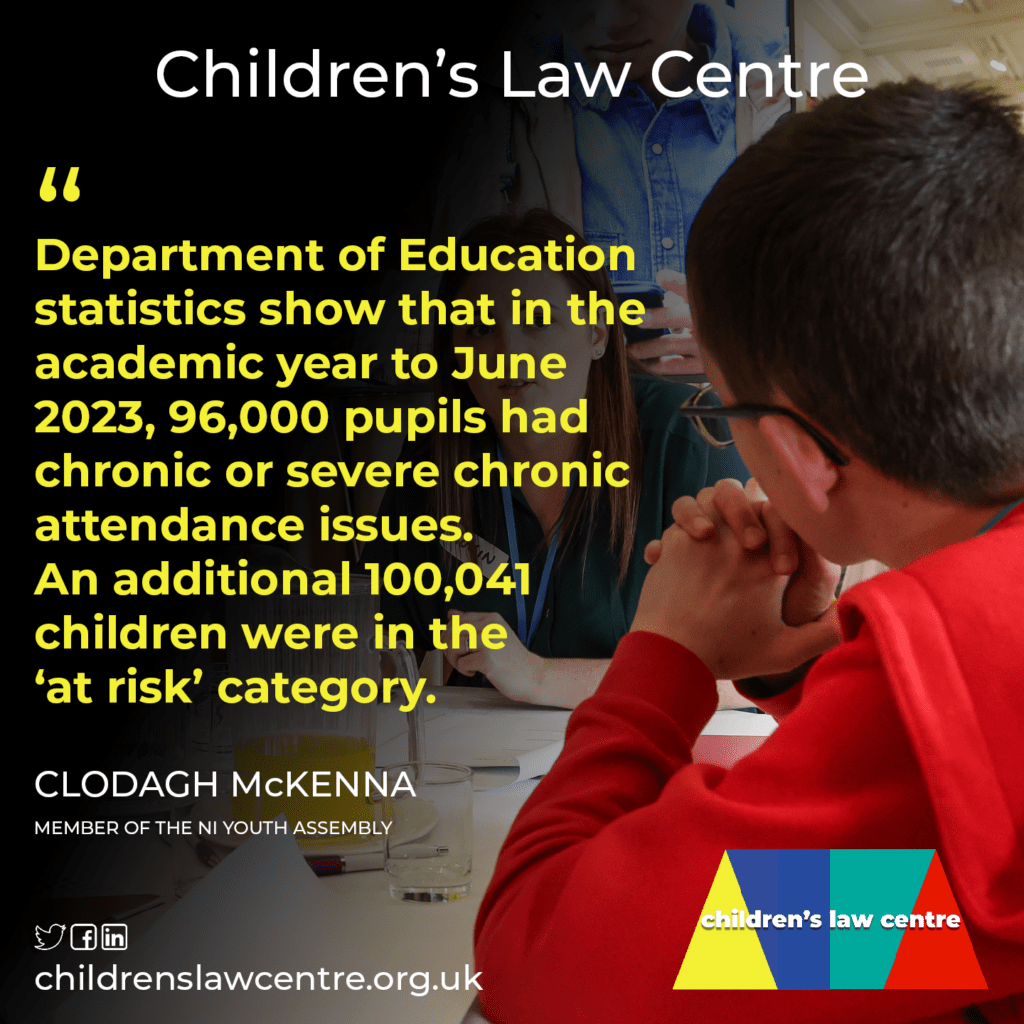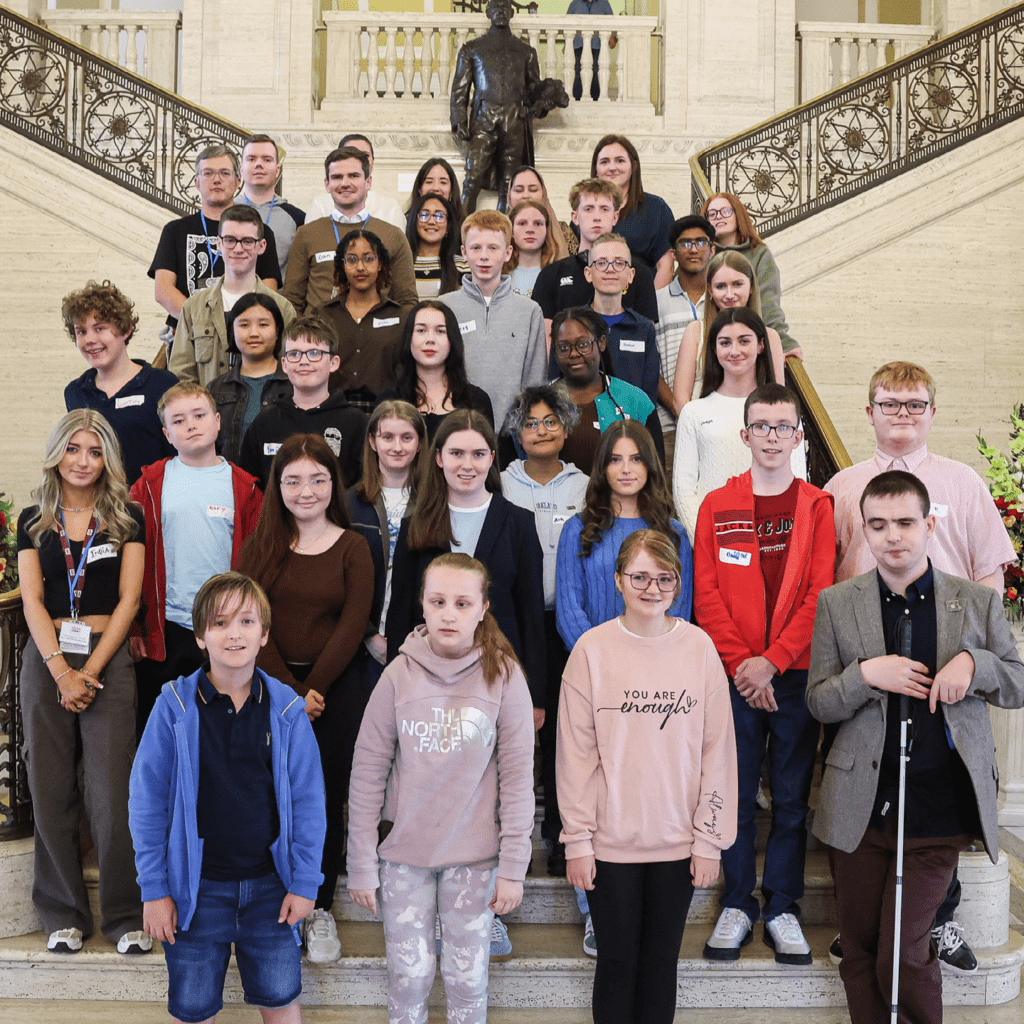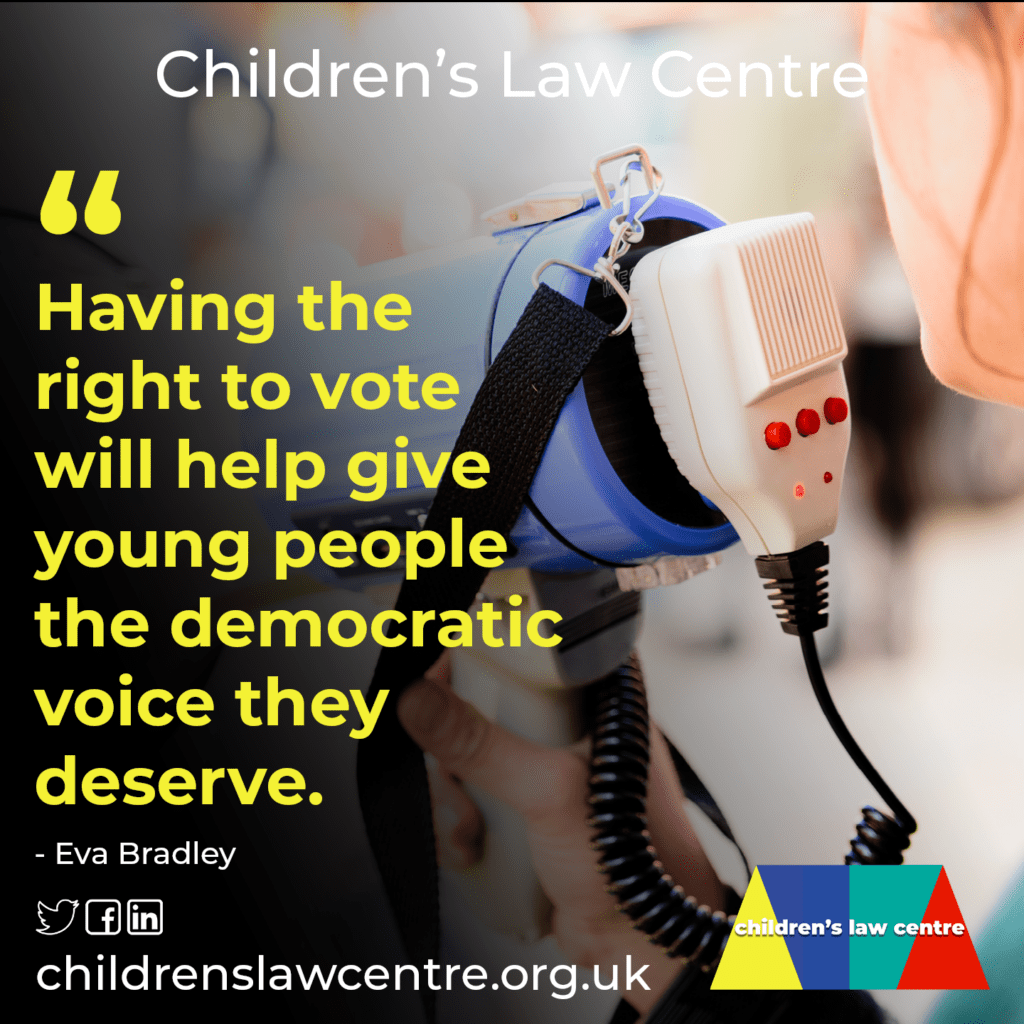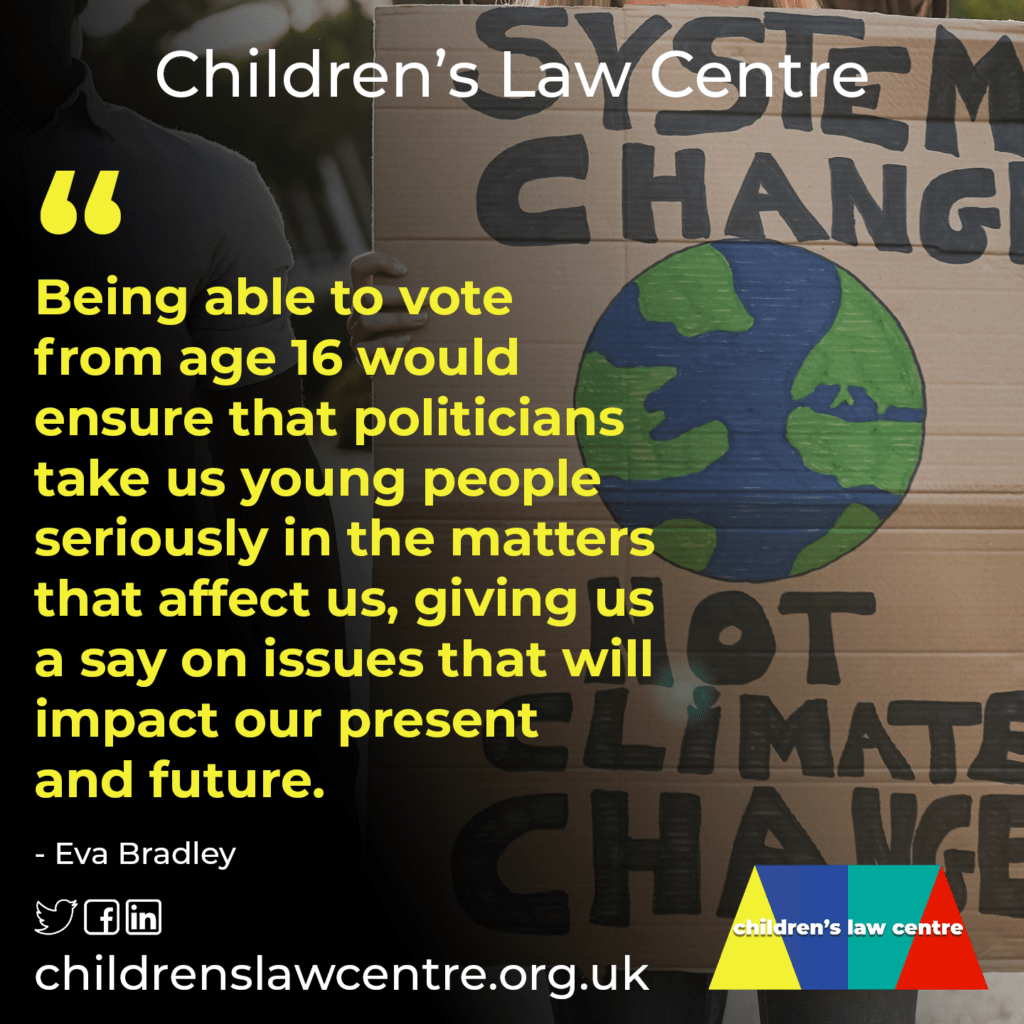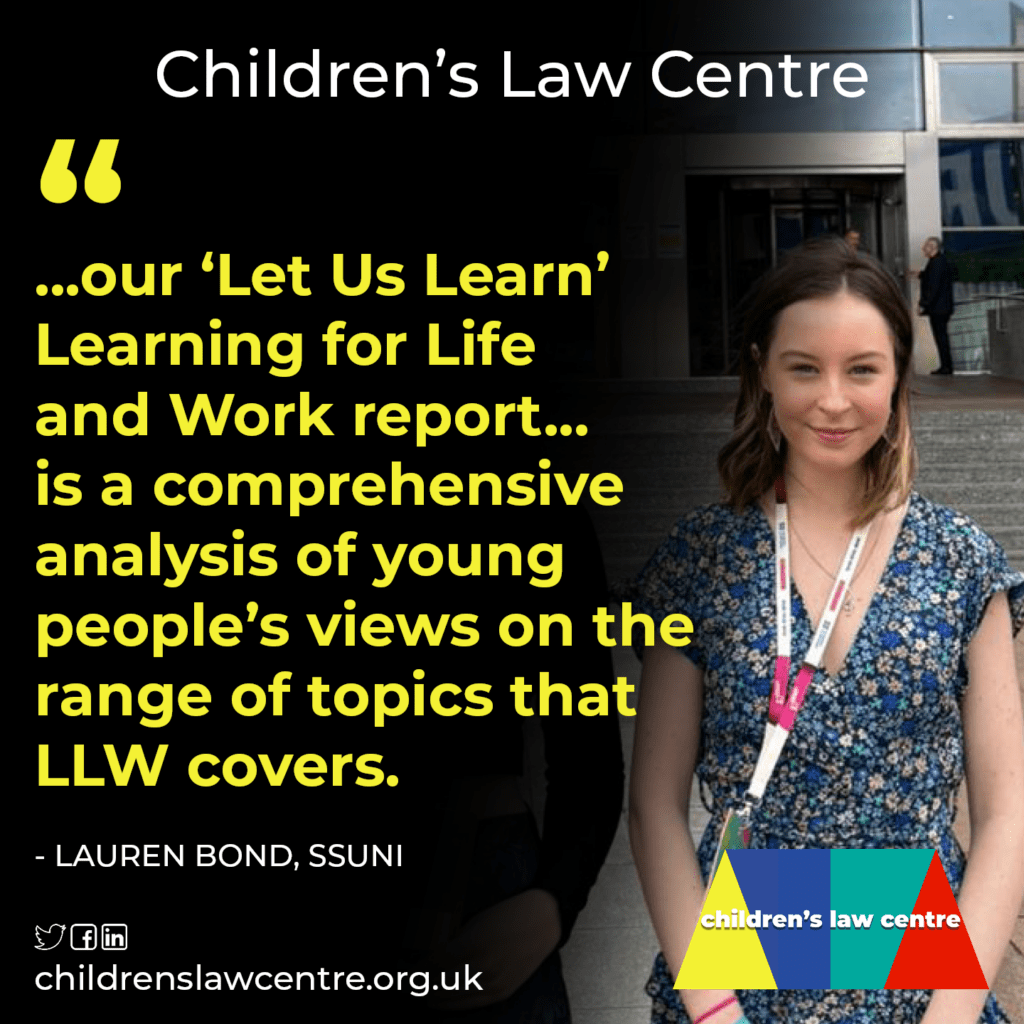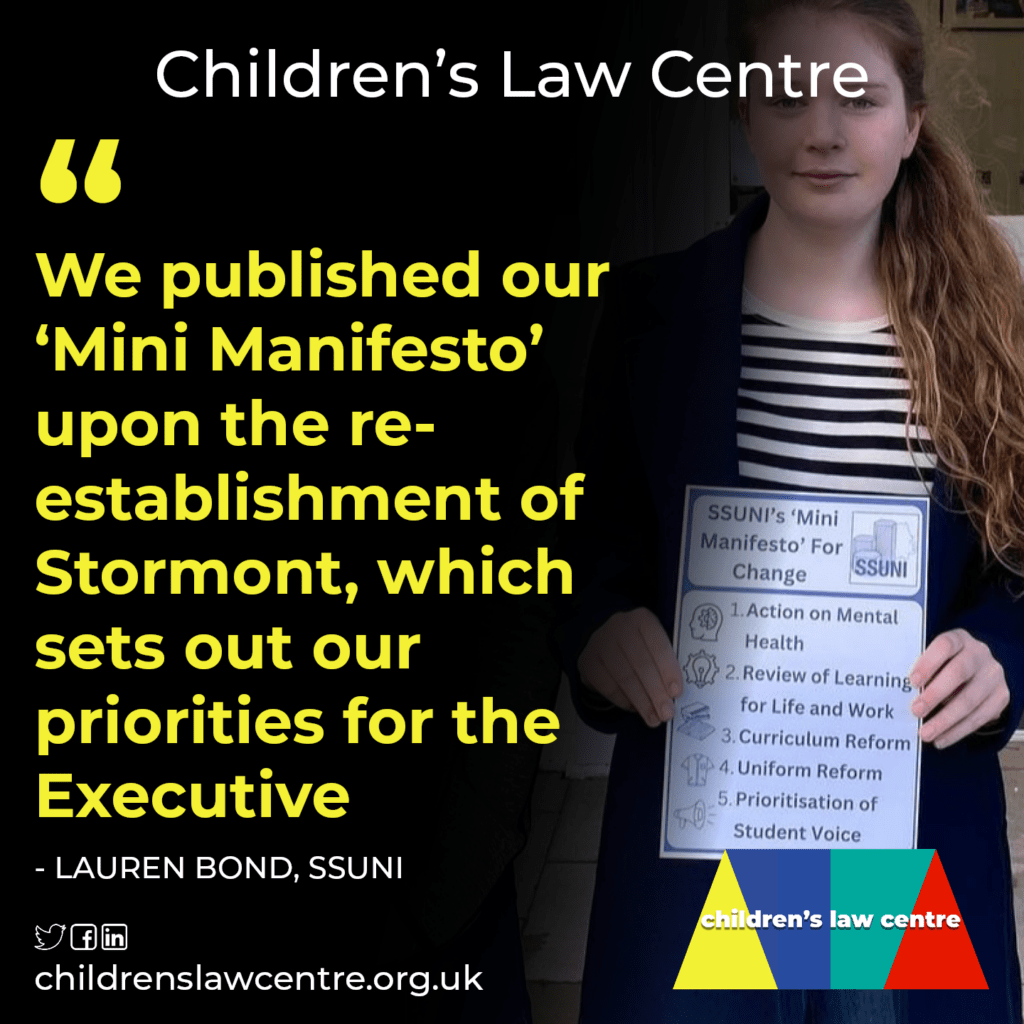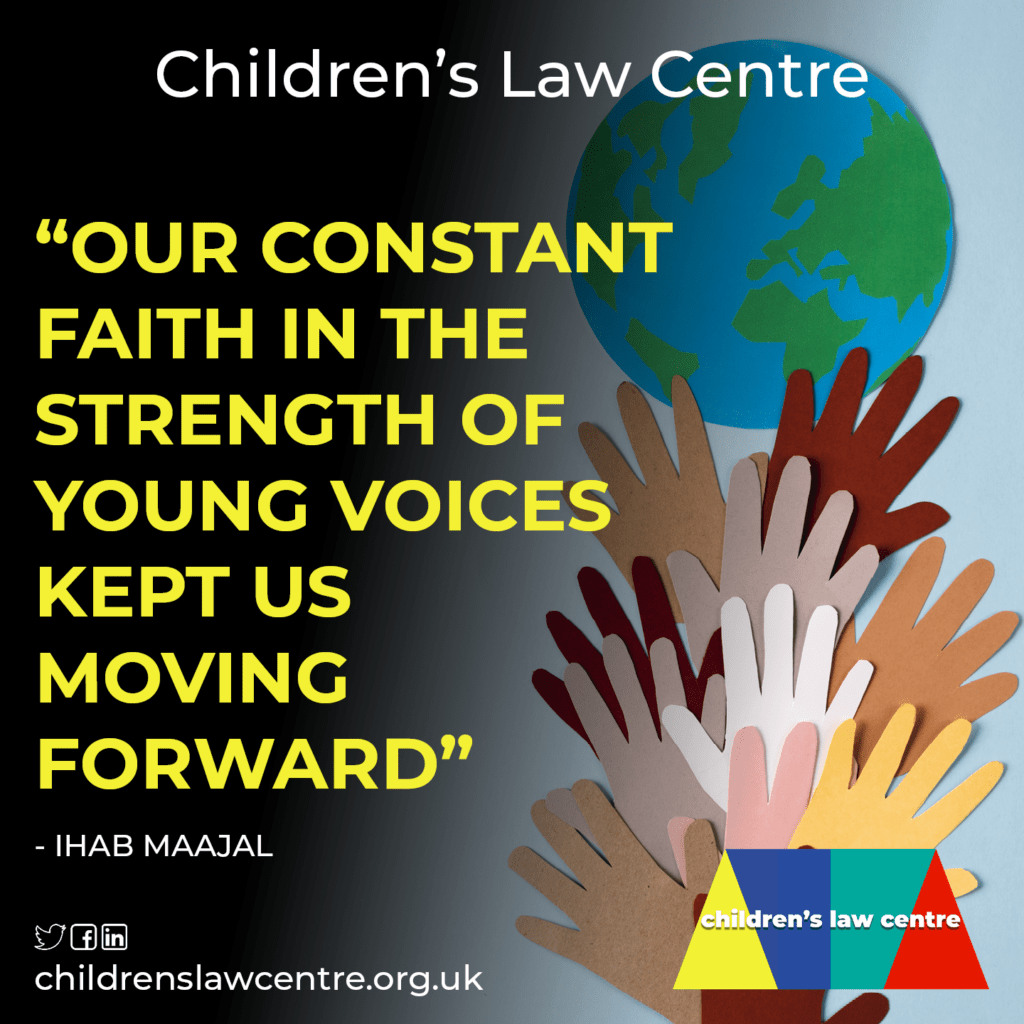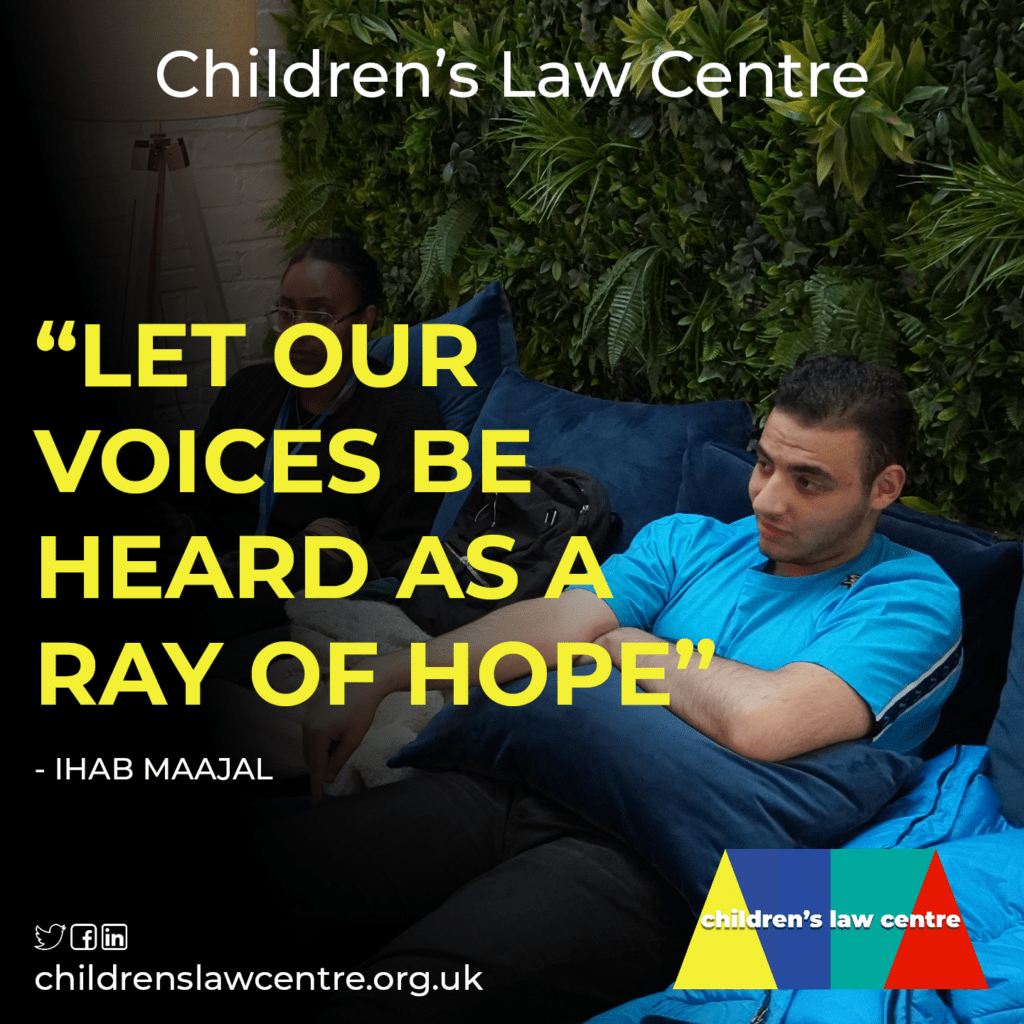31 July 2025
As part of our blog series, Youth@CLC member Elodie Bloomer outlines her journey to becoming a youth advocate on the international stage. To receive these blogs directly to your inbox – and to make sure you don’t miss out on any of the latest news from CLC- sign up to our newsletter ‘Child Rights Matters’.
Written by Elodie Bloomer
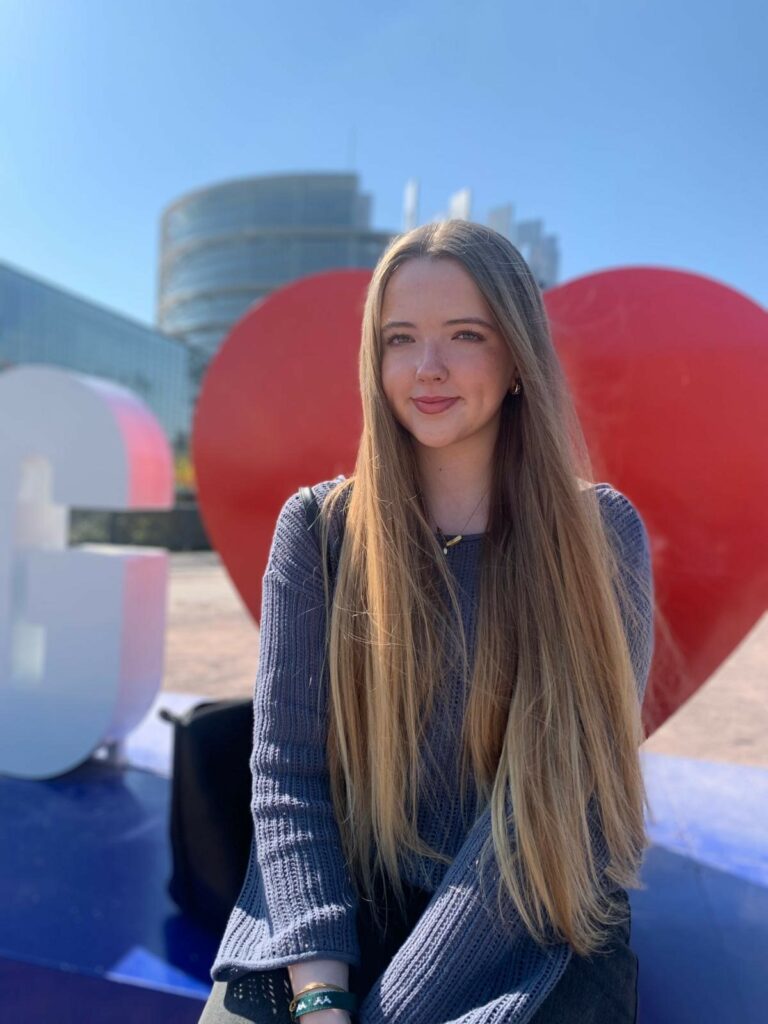
We all universally live with the individual health of our own bodies and our minds. In a world run by adults, it seems that children’s individual rights, particularly in relation to medical issues can sometimes seem secondary to the wishes and wisdom of parents and guardians.
Every child has the right to the best possible health under the UN Convention on the Rights of the Child (UNCRC). The UNCRC also recognises that we, as children, have the right to express our views in all matters that affect us.
There is no issue that may be considered as important as our own health.
We understand that the priority in every health decision must be in protection and to preserve life, as is the ethos of every practising physicians code of ethics, the Hippocratic Oath and the Declaration of Geneva, but we also need to have our say about decisions about the health of our own bodies and minds.
As an anaphylaxis sufferer and having had interactions with both emergency departments and hospital outpatient centres, this issue is one that is very close to my heart. All children have different levels of knowledge about medical matters but one thing that unites all people, regardless of our age, is our ability to feel pain as well as fear. Both can become overwhelming when you are involved in medical situations ranging from an emergency, to going to the doctor who perhaps only speaks to your parent or guardian and not directly to you.
The Journey to Advocacy
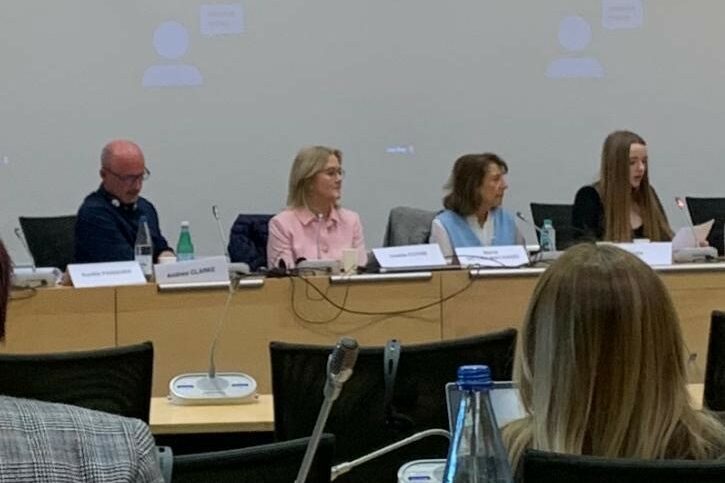
Through my work with The Northern Ireland Commissioner for Children and Young People (NICCY) on children’s rights, I became involved in the European Network of Ombudspersons for Children (ENOC), where we focused on the right of children to participate in health decisions, taking the view that it was hugely important that we educate children on this clearly and openly.
As part of this we considered our own experiences as children – what we want to know, how we want to be educated and treated and to ensure that we, as children, have some control over our own bodies and our health.
Along with ten other young people from different member states and backgrounds, I and another NICCY member worked for a period of six months alongside Child Rights Connect through online workshops to create a universal written guide for children to be used alongside the general guide that the Council of Europe had created for the use of parents, practitioners and professionals on Children’s Participation in Decisions about their Health
We wanted to produce a guide that children could read easily, find accessible and be educated and supported through clear language and informative but fun illustrations and cartoons. We were so fortunate to work with amazing illustrators who carefully took our vision and put friendly faces and characters to it and helped normalise and explain what overwhelming visits to doctors and hospitals could be like and how our own thoughts, feelings and decisions as children are important.
We called it “Your Health, Your Say.”
In April 2025, I attended the Mid Term Review Conference of the Strategy for the Rights of the Child at the Council of Europe in Strasbourg with some of the other young people who had worked on the child friendly guide. There were a range of workshops that I was able to attend on various children’s rights, and I learned so much from being there. I gave a speech at the conference to introduce the child friendly guide and speak on what we had worked on, setting out the main terms of the guide and the importance of accessibility and education of this right to all children.
I also learned about Comprehensive Sexuality Education through my work with NICCY and whilst attending a conference workshop on this, I was asked to take my learnings and to draft and deliver a speech on this at the summary session of the Conference. This underlined further to me, the importance of education on health as well as healthy relationships.
The Child Friendly Guide to Children’s Participation in decisions about their health can be accessed at – https://rm.coe.int/your-health-your-say/1680b5069f
I can’t overstate the importance of the right for children to be involved in decisions affecting their health. I believe it sets a relationship between patient and their health for life. If ownership, understanding and education in relation to health is not given to children early in life, it may negatively affect their future perspectives on their health decisions.
I have continued to focus on the protection and promotion of children’s right to physical health through NICCY. Laura from NICCY supported me and another NICCY member as we all travelled together to Jezercica, Croatia in July to attend the European Network of Young Advisors (ENYA) Forum to meet with other youth representatives of the fifteen regions and states to develop rights based policy recommendations to support the fundamental right of children to physical health.
This was an incredible inspiring few days that uncovered so much learning in a relaxed way. We made many friends and worked with the other youth representatives to understand the challenges to the fundamental right in their own states. We combined our individual ideas and thoughts to create an achievable basis for policy recommendations that we hope will be adopted by the ENOC General Assembly this coming September.
Lived Experience and Delays
Through my own experience, research and work on the main issues, I feel that the protection and promotion of children’s right to physical health in Northern Ireland is affected firstly and most crucially by delays in basic access to services. The waiting list for outpatient appointments for children is often over a year. I have experienced this myself. I suffered life threatening anaphylaxis in May 2024 and I was scheduled for an urgent outpatient appointment with allergy clinic following my attendance at the Emergency Department that saved my life. I received my urgent appointment in April 2025, some eleven months later.
The implications of the weeks of waiting for help are not just physical; they are also psychological. Their impact, at best, is stressful disruption to our lives in the withholding of key knowledge on our own health. Knowledge is power and we are extremely vulnerable without it. At worst, these delays are potentially and actually life threatening.
In less urgent medical circumstances, the wait for treatment can turn from months into years, which raises the important issue of early intervention.The earlier that many health issues are treated, the better the outcome is for the patient. This is applicable not just on a physical level but also on a psychological level. The longer the trauma, the more difficult it is to recover from the psychological scars that are inevitably imprinted by the effects of a health condition that perhaps leads to a patient being unable to attend school, participate in sport or socialising. Life becomes more limited and smaller.
The longer we are ill, the less hope that we have of recovering. We are clothed more in vulnerability than empowerment.
This leads us into another major issue uncovered that is the inevitable link of our physical health and our psychological health. Physical health issues often ultimately lead to psychological health problems, be it from medication side effects, dealing with long term pain or the more limited ability patients may have to enjoy life. It is a connection that necessitates the upholding of both elements of health, regardless of the diagnosis for us as children. The close link of both requires a dual therapeutic approach.
A Healthy Education
Another important issue is the role of the education system in Northern Ireland and how it can be utilised to help with children’s health protection and promotion. There are province wide vaccination programmes and basic services but there is a real need for more support with schools in their support of children suffering both physical health conditions as well as psychological ones. More general education and information would be helpful in the spheres of neurodiversity, puberty, asthma, diabetes and more matters that could help educate us that in turn will give us more of an understanding and ownership over our health. Food, nutrition and health education, as well as active offerings within school, would be important.
Comprehensive Sexuality Education, a sometimes-controversial topic in Northern Ireland, should be more easily accessed and delivered. Further, a more tailored and linked approach between health and education would be valuable in allowing us to manage our own understanding and would help us make choices over our own health.
Empowering Young People
The key point of all of this is the centring of the child in the heart of the decisions that are made about their health. This a key element of the Oviedo Convention of the Council of Europe which underlines the importance of children’s opinion being considered according to their age and maturity.
So many ways to protect and promote children’s rights to physical health are available but they require the will of our government in Stormont as well as the financial backing of Westminster. The budgets are tight, but savings and efficiencies must be made to improve matters as the long-term health of our children, and therefore fundamentally our country’s future, depends on it.
I am so grateful to NICCY, Child’s Right Connect, ENOC, ENYA, the Council of Europe and CLC for giving me the opportunity to learn further about this area of children’s rights that means so much to me. I would also like to thank my allergy consultant, Dr Caoimhe Glancy for all her help and inspiration.


